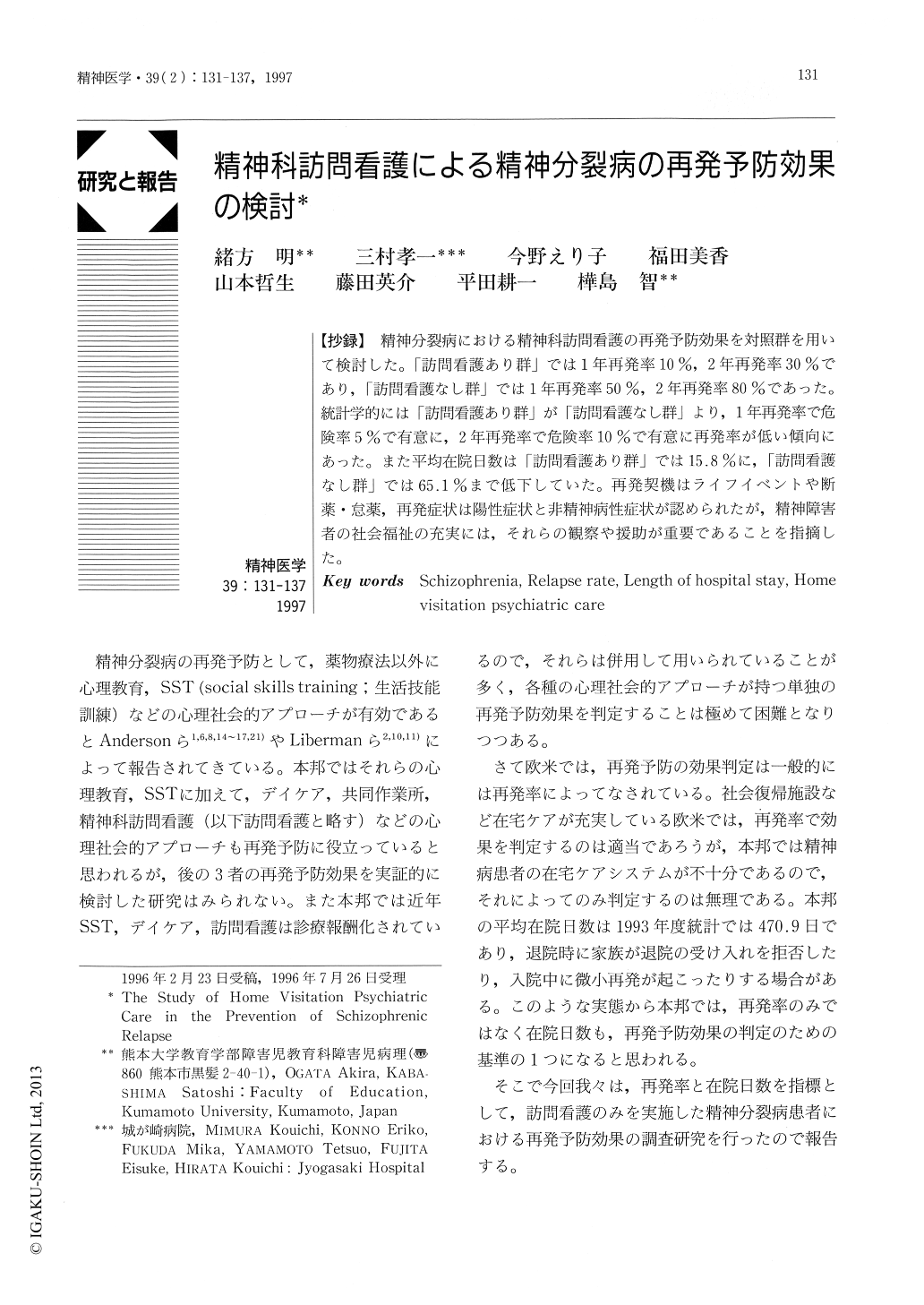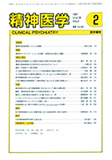Japanese
English
- 有料閲覧
- Abstract 文献概要
- 1ページ目 Look Inside
- サイト内被引用 Cited by
【抄録】精神分裂病における精神科訪問看護の再発予防効果を対照群を用いて検討した。「訪問看護あり群」では1年再発率10%,2年再発率30%であり,「訪問看護なし群」では1年再発率50%,2年再発率80%であった。統計学的には「訪問看護あり群」が「訪問看護なし群」より,1年再発率で危険率5%で有意に,2年再発率で危険率10%で有意に再発率が低い傾向にあった。また平均在院日数は「訪問看護あり群」では15.8%に,「訪問看護なし群」では65.1%まで低下していた。再発契機はライフイベントや断薬・怠薬,再発症状は陽性症状と非精神病性症状が認められたが,精神障害者の社会福祉の充実には,それらの観察や援助が重要であることを指摘した。
This report examines the preventive effect of Home Visitation Psychiatric Care on schizophrenic relapse. A common practice in the Japanese psychiatric field, Home Visitation Psychiatric Care is a psycho-social approach to therapy in which psychiatric social workers, nurses, and psychologists associated with mental health facilities from a team to provide home care to patients.
For the 10 case receiving this care the relapse rate was 10% in the first year and 30% over two years. The relapse rate of the 10 cases not receiving this therapy was 50% in one year and 80% over two years. When statistical comparisons between the two groups are made, it is immediately lower relapse rate after on year (p<0.05), and a continued lower rate of relapse after two years (p<0.1).
Certain life events, discontinuation of medication or failure to take medication, are seen as factors that trigger relapses with both positive symptoms and non-psychotic symptoms being recognized as indications of relapse.
Regarding social welfare for mental patients, the importance of being aware of relapse triggering factors as well as symptoms and methods of assistance has been emphasized.

Copyright © 1997, Igaku-Shoin Ltd. All rights reserved.


